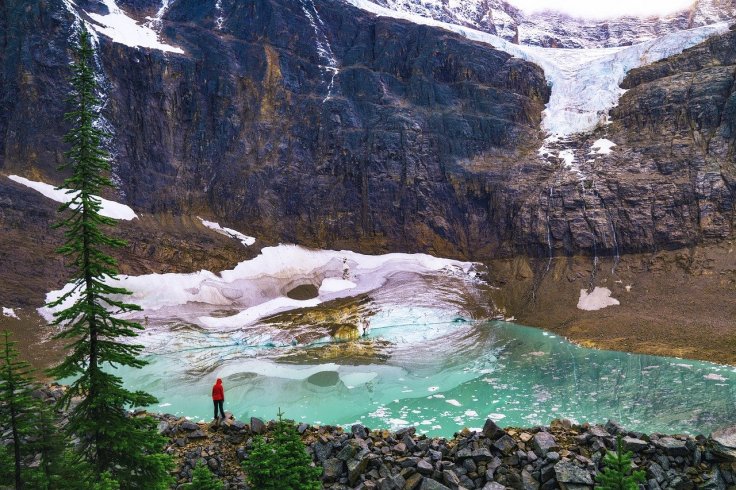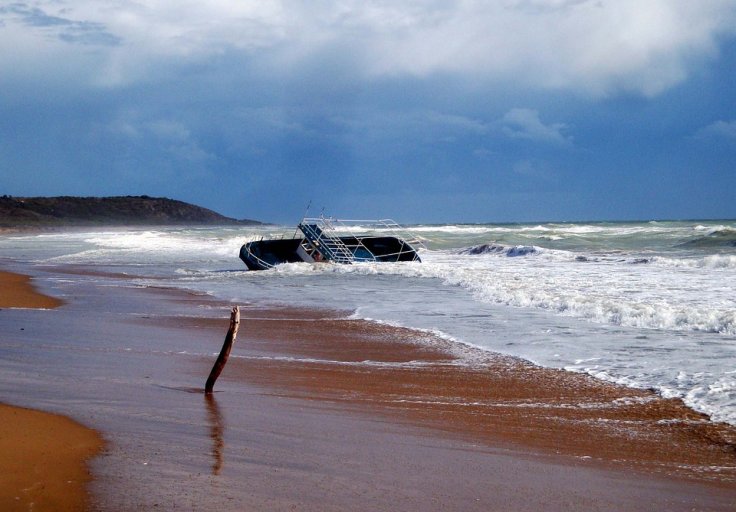Earth has an ice problem. It is melting too fast across the planet. As per a new study, researchers found that the planet lost a 100-meter-thick ice sheet — equivalent to covering the entire UK — between 1994 and 2017 from Antarctica to the Arctic and it is accelerating with rising temperatures.
The study, conducted by environmental scientists from the UK, analyzed satellite data to conclude that in the last three decades, the planet lost 28 trillion tons of ice. However, the worrying aspect of it is the pace. From 0.8 trillion tons in the 1990s, the loss of ice has accelerated to 1.3 trillion tons per year by 2017. It is an increase of 65 percent.
"It's such a huge amount that it's hard to imagine. Ice plays a crucial role in regulating the global climate and losses will increase the frequency of extreme weather events such as flooding, fires, storm surges and heatwaves," Dr Thomas Slater, the lead author of the study and a research fellow at the University of Leeds' Center for Polar Observation and Modelling, told Wall Street Journal.

The Study
Apart from Dr Slater, eight other scientists from University College London, a climate data company named Earth Wave Ltd and the University of Edinburgh contributed to the research. The scientists analyzed images from 17 satellites covering 215,000 glaciers, polar ice sheets in Antarctica and Greenland and icebergs in the Arctic and other Oceans.
"Over the past three decades, there's been a huge international effort to understand what's happening to individual components in Earth's ice system, revolutionized by satellites which allow us to routinely monitor the vast and inhospitable regions where ice can be found. Our study is the first to combine these efforts and look at all the ice that is being lost from the entire planet," Dr Slater said.

What is the Impact?
Sea-level rise: The loss of ice sheets contributes to rising sea levels. That increases the risk of flooding in coastal communities and threatens the existence of small islands. In turn, it could even wipe out wildlife and natural habitats. As per the study, about half of the lost ice was from floating polar regions that raised sea levels by 35 millimeters.
Speeding up global warming: The loss of ice at polar regions also increases the risk of a feedback mechanism called albedo loss. White ice helps in reflecting solar radiation into space, maintaining the planet's temperature. But when the icebergs melt, it exposes the dark water that absorbs more heat and accelerates the warming further. As per current estimates, the planet has already seen a global temperature increase of 2 degrees Celsius.

Drinking water shortage: However, flooding and accelerated global warming aren't the only problems. As per the study that was published in the European Geophysical Union's journal the Cryosphere on January 25 the next significant melt was observed in the glaciers. Between the 23-year period, six tons of ice melted shrinking glaciers further. As glaciers are the biggest source of drinking water, shrinking glaciers would provide less water flow for drinking water and agriculture. Furthermore, melting glaciers could overwhelm both seawater and result in flooding.
"As well as contributing to global mean sea level rise, mountain glaciers are also critical as a freshwater resource for local communities. The retreat of glaciers around the world is therefore of crucial importance, at both local and global scales," Inès Otosaka, co-author of the study told the Guardian.









